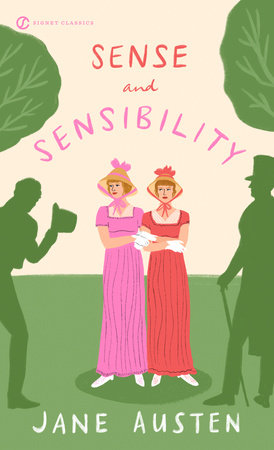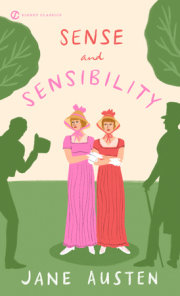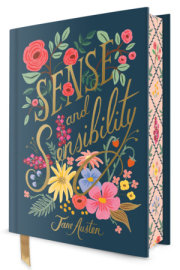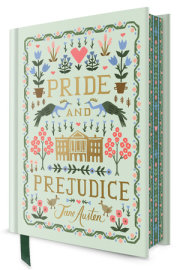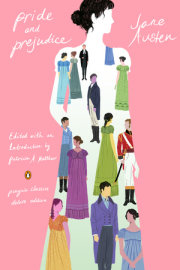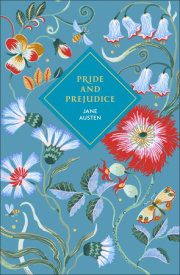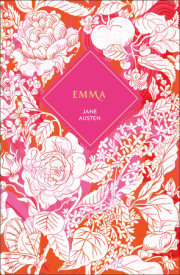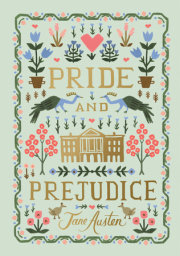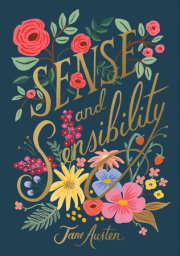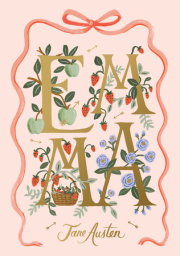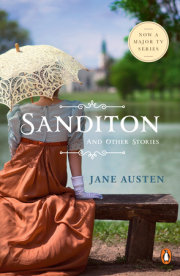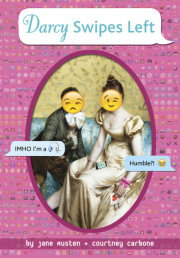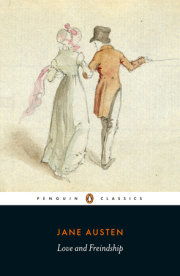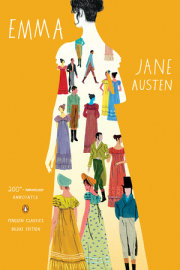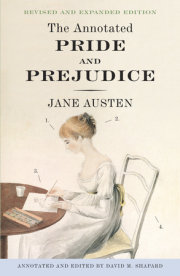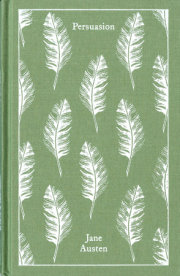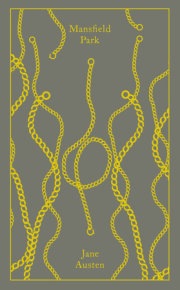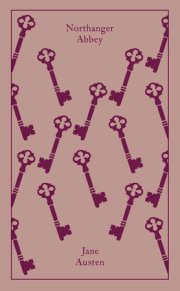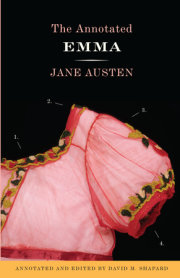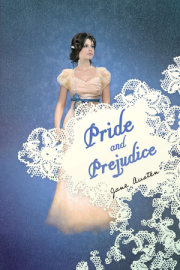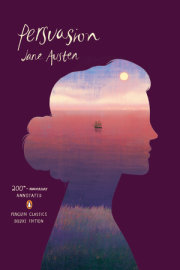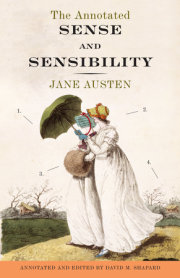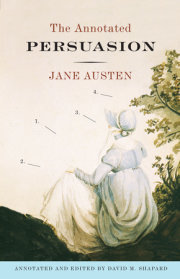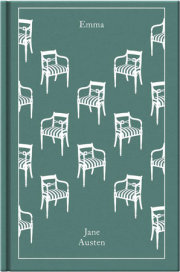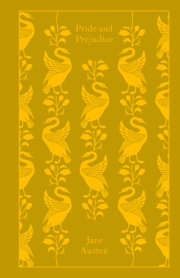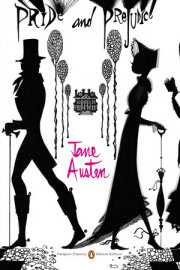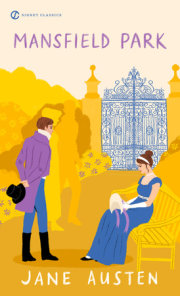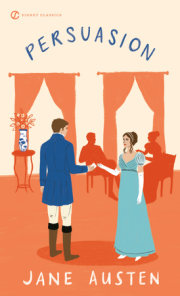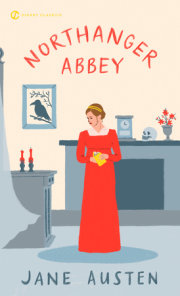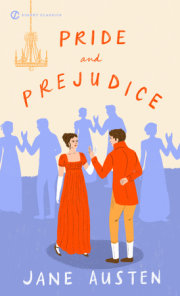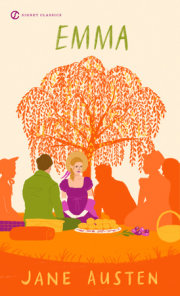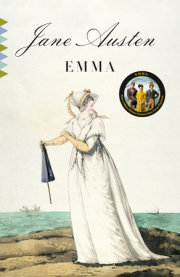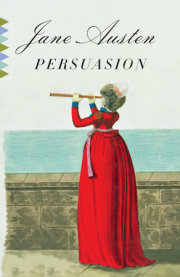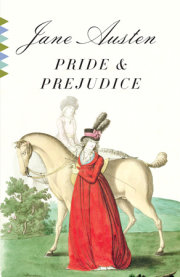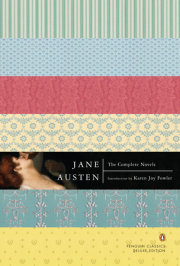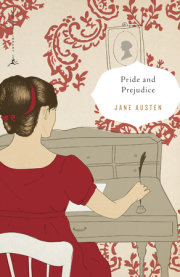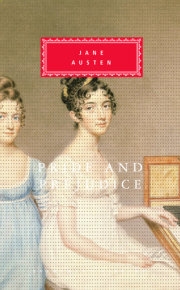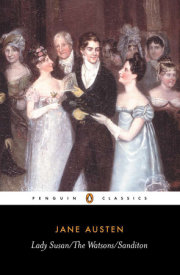Sense and Sensibility, the first of those metaphorical bits of "ivory" on which Jane Austen said she worked with "so fine a brush," jackhammers away at the idea that to conjecture is a vain and hopeless reflex of the mind. But I'll venture this much: If she'd done nothing else, we'd still be in awe of her.
Wuthering Heights alone put Emily Brontë in the pantheon, and her sister Charlotte and their older contemporary Mary Shelley might as well have saved themselves the trouble of writing anything but
Jane Eyre and
Frankenstein.
Sense and Sensibility, published in 1811, is at least as mighty a work as any of these, and smarter than all three put together. And it would surely impress us even more without
Pride and Prejudice (1813),
Mansfield Park (1814), and
Emma (1815) towering just up ahead. Austen wrote its ur-version,
Elinor and Marianne, when she was nineteen, a year before
First Impressions, which became
Pride and Prejudice; she reconceived it as
Sense and Sensibility when she was twenty-two, and she was thirty-six when it finally appeared. Like most first novels, it lays out what will be its author's lasting preoccupations: the "three or four families in a country village" (which Austen told her niece, in an often-quoted letter, was "the very thing to work on"). The interlocking anxieties over marriages, estates, and ecclesiastical "livings." The secrets, deceptions, and self-deceptions that take several hundred pages to straighten out-to the extent that they get straightened out. The radical skepticism about human knowledge, human communication, and human possibility that informs almost every scene right up to the sort-of-happy ending. And the distinctive characters-the negligent or overindulgent parents, the bifurcating siblings (smart sister, beautiful sister; serious brother, coxcomb brother), the charming, corrupted young libertines. Unlike most first novels, though, Sense and Sensibility doesn't need our indulgence. It's good to go.
In the novels to come, Elinor Dashwood will morph into Anne Elliott and Elizabeth Bennet (who will morph into Emma Woodhouse); Edward Ferrars into Edmund Bertram, Mr. Knightley, Henry Tilney, and Captain Wentworth; Willoughby into George Wickham and Henry Crawford. But the characters in Sense and Sensibility stand convincingly on their own, every bit as memorable as their later avatars. If Austen doesn't have quite the Caliban-to-Ariel range of a Shakespeare, she can still conjure up and sympathize with both Mrs. Jennings-the "rather vulgar" busybody with a borderline-unwholesome interest in young people's love lives, fits of refreshing horse sense, and a ruggedly good heart-and Marianne Dashwood, a wittily observed case study in Romanticism, a compassionately observed case study in sublimated adolescent sexuality, and a humorously observed case study in humorlessness. "I should hardly call her a lively girl," Elinor observes to Edward, "-she is very earnest, very eager in all she does-sometimes talks a great deal and always with animation-but she is not often really merry." Humorlessness, in fact, may be the one thing Marianne and her eventual lifemate, Colonel Brandon, have in common. (Sorry to give that plot point away; it won't be the last one, either. So, fair warning.) The minor characters have the sort of eidetic specificity you associate with Dickens: from the gruesomely mismatched Mr. and Mrs. Palmer to Robert Ferrars, splendidly impenetrable in his microcephalic self-complacency. The major characters, on the other hand, refuse to stay narrowly "in character"; they're always recognizably themselves, yet they seem as many-sided and changeable as people out in the nonfictional world.
Elinor makes as ambivalent a heroine as Mansfield Park's notoriously hard-to-warm-up-to Fanny Price. She's affectionately protective of her sister Marianne yet overfond of zinging her: "It is not every one who has your passion for dead leaves." She's bemused at Marianne's self-dramatizing, yet she's as smug about suffering in silence as Marianne (who "would have thought herself very inexcusable" if she were able to sleep after Willoughby leaves Devonshire) is proud of suffering in Surround Sound. She can be treacherously clever, as when Lucy Steele speculates (correctly) that she may have offended Elinor by staking her claim to Edward: " 'Offended me! How could you suppose so? Believe me,' and Elinor spoke it with the truest sincerity, 'nothing could be farther from my intention, than to give you such an idea.' " Yet she can also be ponderously preachy: "One observation may, I think, be fairly drawn from the whole of the story-that all Willoughby's difficulties, have arisen from the first offense against virtue, in his behaviour to Eliza Williams. That crime has been the origin of every lesser one, and of all his present discontents." (In the rest of Austen, only the intentionally preposterous Mary in Pride and Prejudice strikes just this note: "Unhappy as the event may be for Lydia, we may draw from it this useful lesson; that loss of virtue in a female is irretrievable . . ."). Is Elinor simply an intelligent young woman overtaxed by having to be the grown-up of the family? Or is she an unconsciously rivalrous sibling, sick of hearing that her younger, more beautiful sister will marry more advantageously? Or both? Or what? It's not that Austen doesn't have a clear conception of her-it's that she doesn't have a simple conception. Elinor is the character you know the most about, since Austen tells most of the story from her point of view, and consequently she's the one you're least able to nail with a couple of adjectives or a single defining moment.
Edward bothers us, too. He's a dreamboat only for a woman of Elinor's limited expectations: independent-minded yet passive and depressive, forthright and honorable yet engaged in a book-long cover-up. (It's a tour de force on Austen's part to present a character so burdened with a secret that we see his natural behavior only long after we've gotten used to him.) At his strongest and most appealing-to Elinor, at least-he's a clear-your-mind-of-cant kind of guy: "I am not fond of nettles, or thistles, or heath blossoms. . . . A troop of tidy, happy villagers please me better than the finest banditti in the world." But he can also be a Hamlet-like whiner, complaining about his own idleness and vowing that his sons will be brought up "to be as unlike myself as possible. In feeling, in action, in condition, in every thing." For my money, Edward is the least likable of Austen's heroes, while his opposite number, Willoughby, is the most sympathetic of her libertines: smarter than Pride and Prejudice's Wickham (a loser who gets stuck with the "noisy" and virtually portionless Lydia Bennet) and more warmhearted than Mansfield Park's textbook narcissist Henry Crawford. Willoughby may strike trendy Wordsworthian poses with his effusions on cottages ("I consider it as the only form of building in which happiness is attainable"), but at least he has enough sense to abhor his own callowness, and enough sexy boldness to discompose even the rational Elinor. "She felt that his influence over her mind was heightened by circumstances which ought not in reason to have weight; by that person of uncommon attraction, that open, affectionate, and lively manner which it was no merit to possess . . ." His opening line when he at last explains to her what he's been up to ("Tell me honestly, do you think me most a knave or a fool?") is one of those Byronic flourishes that make him the person in Sense and Sensibility you'd most want to dine with and least want to trust.
. All rights reserved. No part of this excerpt may be reproduced or reprinted without permission in writing from the publisher.

